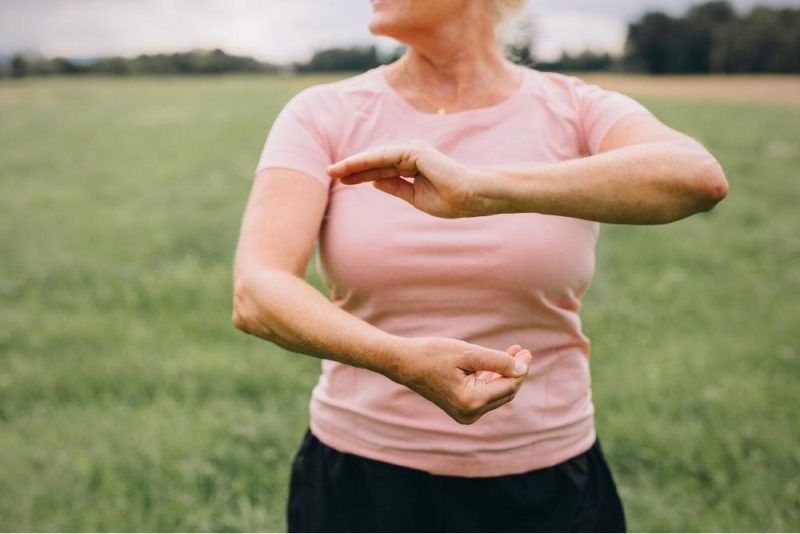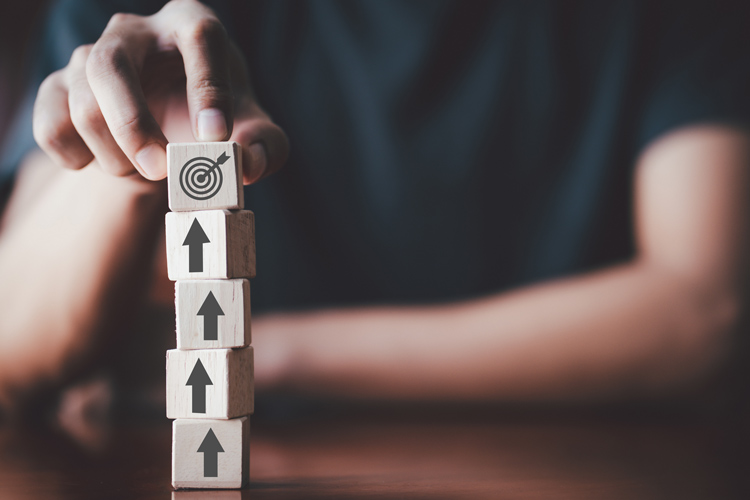How to get out of your head, into your body
[ad_1]

Did you know your head and your entire body are related? No, really…they aren’t separated at the neck! Alright, I’m currently being a tiny flippant there, but let’s experience it, quite a few of us do stroll close to as if there was a hole higher than our collarbones, at least some of the time.
If you want to chat physiology, our brains and our bodies are in continuous two-way communication. That assures that important-to-lifestyle features like respiratory and circulation happen 24-7. This interaction also has an effect on the state of your nervous system – whether you are in battle, flight, freeze, you should or (ideally) relaxation mode. And, mainly because most of the mood-boosting chemical serotonin is manufactured in your intestines, the well being of your intestine unquestionably affects the condition of your brain.
And those people are just a couple illustrations. A solid intellect-physique relationship aids us treatment for our wellness and properly-being in many strategies.
But it’s not unconventional to be all up in our heads, caught up in our feelings, our problems, our anxieties. Our brains can spin the most doomsday, no-joyful-endings-here stories about the state of the region, the world, our relationships, our bodies. Oh yeah…what about your overall body? How do you get into it?

End and odor the roses
No matter if you are a worrier, a planner, or are just way too occupied, when you expend most of your time shed in your views, your expertise of lifetime gets brief shrift. For the reason that when you’re contemplating, you aren’t noticing and suffering from the current instant. You aren’t conscious.
Of system, to get out of your head, you have to be mindful of when you’re stuck there, replaying past occasions or rehearsing potential situations. But, how you do that? We’ve by now founded that when you are caught up in ideas, you are not really conscious.
You could simply seize the moment when you do take place to detect you are in your head and quite much oblivious to the environment close to you. You can also set exterior reminders (alarms, cell phone notifications) prompting you to prevent what you are carrying out (and wondering) and drop down into your body.
The two means I like to do this are to get grounded or to do a human body scan. When you “ground” yourself, you switch your notice to the locations in which your entire body contacts surfaces.
- Your feet on the flooring
- Your butt and the back again of your thighs in a chair
- The back again of your system on the flooring or mattress
These develop into proxies for the floor, or earth. Hence “grounding.” (Executing a slow barefoot strolling meditation outdoors on grass or other harmless surfaces can be a wonderful, and literal, grounding training. You could also stand, sit or lay in the grass.)
There are different forms of human body scans, but they primarily boil down to inserting your consideration one particular overall body aspect at a time, beginning at the head or the toes (your selection), and be aware what you sense there. Rigidity? Tingling? Power? Tightness? Softness? Contraction? Expansiveness? Warmth?

A brief notice about trauma
If you have a record of physical or sexual trauma, or if you have endured a great deal of verbal abuse directed at your overall body, then your entire body might not come to feel like a safe and sound location to be. You may perhaps not want to fall down into your body by using a entire body scan. In simple fact it could not be a excellent plan for you to do so devoid of specialist steerage from a trauma or somatic therapist.
Usually, grounding routines are harmless and helpful for trauma survivors, because you’re simply just connecting with the physical earth. As stated earlier mentioned, this can take the type of turning your consideration to the feel of your ft on the floor or your butt in the chair. You can also change your attention, and your senses, to the globe all around you. You can glance at, and identify, objects, textures or hues. You can recognize and name smells or seems.
Walking can also be a grounding training (provided you are capable to wander). You can detect your feet striking the ground, the come to feel of the breeze or sunlight on your skin, the seems of birds or rustling leaves.

Why it’s truly worth slowing your roll
Are you speeding all the time? If so, you’re possibly wondering, and not dealing with your physique and its environment. I broke my very little toe this way many yrs in the past, dashing out of my bedroom to…I never even remember why…and stubbing my toe on a person of the wooden mattress posts. I absolutely sure experienced my system then!
When you transfer additional slowly and gradually, you observe additional. I place a halt to power going for walks whilst sightseeing on vacation a several yrs just after the damaged toe incident, due to the fact I needed to SEE items, not just race from level A to stage B. (This was in Hawaii, no significantly less, which is a ideal put to sluggish your tempo.) Slowing down when I fold equipped sheets tends to make the system much more satisfying, significantly less annoying .(I have the approach down, but it goes a lot more efficiently when completed bit by bit.)
Slowing down can be formal or casual. Tai chi, which will involve slow, conscious movement along with deep respiratory is a single formal observe, and investigate exhibits that individuals who do exercise it are significantly less likely to encounter strain, anxiety or despair. For now, a single of my casual tactics is to walk as a result of my backyard every day (even if I’m not truly gardening) to admire and examine in on every single plant.
One more casual gradual-down apply is to mindfully shower or bathe (this can also be grounding, for the reason that drinking water is a pure factor). I will admit that I do some of my ideal wondering in the shower, but occasionally I intentionally shell out notice to how the h2o feels on my pores and skin. You can also turn it into a nice perform-to-household transition by visualizing the stresses of the working day washing or soaking away.

Interoceptive consciousness
Just one crucial aspect of Intuitive Ingesting is interoceptive consciousness. This involves the ability to notice internal cues of starvation and fullness, but it’s so a lot extra than that – it’s about perceiving all method of internal states and sensations. A complete bladder. A “gut feeling” about an individual. A racing heart. Additionally, any of the sensations (and additional) that I mentioned higher than when chatting about system scans.
That past bit is significant, mainly because although ideas are in our head, feelings are felt, professional and saved in our bodies. Distinct emotions activate various elements of the physique. A person of my “tells” for when I’ve been encountering lower-degree worry for a interval of time (usually when I have a ton of quite a few deadlines in immediate succession) is that my upper back will develop into incredibly tense. Frequently, that is what I notice initial, then I understand, “Oh yeah…the very last handful of weeks have been demanding!” Then I prioritize fitting in some meaningful self-treatment.
We can’t tend to our thoughts if we really don’t notice them. Being informed of body sensations connected with thoughts does more than convey to us that we’re experience some thing, it can support us identify what emotion we’re emotion. I imagined this report on Greatist talked over this concept properly.
When we can establish our emotions, we can then both make place for them to fade, or take action to reduce their intensity extra speedily. To echo what I talked over about trauma earlier mentioned, if it does not experience safe and sound to be in your physique, then tuning into how feelings truly feel in the entire body won’t truly feel protected either.
Similarly, people today who are neurodivergent (ADHD, autism spectrum condition, or a range of other conditions) may perhaps have difficulty with interoception. That can also be true for neurotypical people who have just expended a Lot of time in their heads, though they can normally boost interoceptive expertise if they so opt for.
Carrie Dennett is a Pacific Northwest-dependent registered dietitian nutritionist, freelance author, intuitive ingesting counselor, creator, and speaker. Her superpowers consist of busting diet myths and empowering ladies to feel superior in their bodies and make foodstuff selections that assist satisfaction, diet and wellbeing.
 Print This Post
Print This Post
[ad_2]
Resource connection







